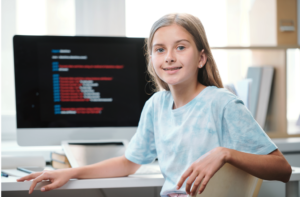 This report is based on the 2018–19 survey “Teachers’ Use of Technology for School and Homework Assignments.” This survey was conducted in response to a request from Congress about the educational impact of students’ access outside the classroom to digital learning resources, such as computers and the Internet. The survey responds to the congressional request by collecting data such as the location and types of devices and technologies that students use for educational purposes, the impact that students’ access to technology outside of school has on teachers’ homework assignments, and ways that schools and teachers address challenges that students with limited access to technology face in completing homework assignments. It focuses on information that can best be provided by teachers from their perspective and direct interaction with students. The survey provides nationally representative data of public school teachers who taught at least one regularly scheduled class in grades 3–12 and taught either self-contained classes or departmentalized classes in one or more of the core subjects of English/language arts, social studies/social science, math, or science.1 Teachers were asked to respond about the students they were teaching during the 2018–19 school year. Computers were defined to include desktop and laptop computers, as well as tablets with a virtual or physical keyboard. Smartphones were not included in the definition of computers, but separate information was collected for smartphones.
This report is based on the 2018–19 survey “Teachers’ Use of Technology for School and Homework Assignments.” This survey was conducted in response to a request from Congress about the educational impact of students’ access outside the classroom to digital learning resources, such as computers and the Internet. The survey responds to the congressional request by collecting data such as the location and types of devices and technologies that students use for educational purposes, the impact that students’ access to technology outside of school has on teachers’ homework assignments, and ways that schools and teachers address challenges that students with limited access to technology face in completing homework assignments. It focuses on information that can best be provided by teachers from their perspective and direct interaction with students. The survey provides nationally representative data of public school teachers who taught at least one regularly scheduled class in grades 3–12 and taught either self-contained classes or departmentalized classes in one or more of the core subjects of English/language arts, social studies/social science, math, or science.1 Teachers were asked to respond about the students they were teaching during the 2018–19 school year. Computers were defined to include desktop and laptop computers, as well as tablets with a virtual or physical keyboard. Smartphones were not included in the definition of computers, but separate information was collected for smartphones.
Institute for Education Science
 from Distance-Educator.com https://ift.tt/2XOUvYS
from Distance-Educator.com https://ift.tt/2XOUvYSvia IFTTT
Comments
Post a Comment